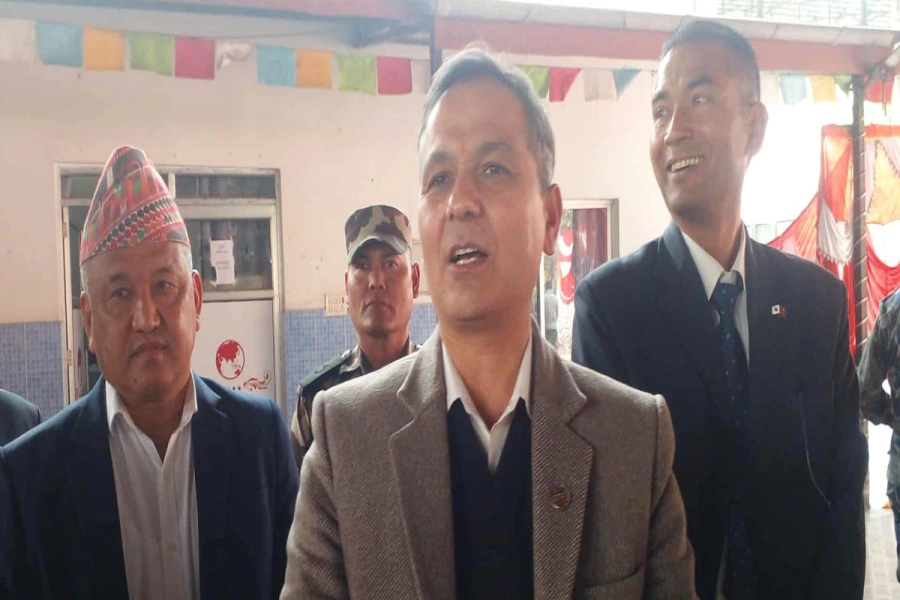Disaster preparedness
It's definitely on cards: Quentin Tarantino on 'Kill Bill 3'

The lack of seriousness on disaster preparedness is evident from the fact that the Disaster Management Bill, the draft of which was finalized way back in 2008, is yet to be tabled in the legislature-parliament. The salient point of the bill was its focus on community-led interventions, which is considered a more effective approach to disaster management than trying to oversee everything from the center. The draft bill also enumerates ways in which local and national disaster management programs can be better coordinated. Had it been enacted, the latest disaster to hit the country, the Jajarkot-centered swine flu epidemic, could perhaps have been better managed and many lives saved. The Sushil Koirala government has shown breathtaking irresponsibility by delaying the bill, even though the parliamentary Good Governance and Monitoring Committee has repeatedly directed it to table it in the parliament. There was some urgency when monsoon floods last year killed 250 people, but as soon as news of flood-related deaths stopped making headlines, the urgency dissipated.
There is apparently some confusion regarding whether there should be an autonomous National Disaster Management Authority, as is the international practice, or if disaster management should be handled by existing government agencies. This is useless nitpicking. The draft bill clearly stipulates an autonomous body that works in consultation with government line agencies. Home Ministry honchos, it appears, fear that transferring disaster management duties to an autonomous body would undercut their powers and possibly erode their 'extra income'; with the country receiving an average of US $1 billion in aid, there is indeed no shortage of funds flowing into emergency preparedness. With so much at stake, no wonder the bill has been lost in the labyrinthine Home Ministry corridors. It will possibly not be found until another couple of hundred die in another national disaster. The last time our bureaucrats were juddered awake was during the 2008 Koshi floods that led to the death of 300 people and displaced around 600,000. Most disaster experts agreed that even rudimentary preparations could have prevented most deaths. But something good did come out of it. Nepal Army, Armed Police Force and Nepal Police all subsequently created separate 'disaster' departments.But these measures are patchy. Again, this is why enactment of the proposed Disaster Management Bill is important. It would, for the first time, prepare Nepal to handle any kind of disaster, any time of the year. This is not to suggest that the bill, once enacted, will be a magic pill. For instance it can do nothing about the absence of elected local representatives for the last eight years. There is as such no institutional memory of how disasters were handled at the local level in the past. Despite its limitations the bill, nonetheless, would be a starting point for Nepal to deal with the variegated challenges—climate change, pandemics, cyber attacks—that characterize the 21st century globalised world. In the end, we don't expect miracles of a transitional government. But it is sad that despite the loss of thousands of lives every year even bare minimum is not being done to save them.




































